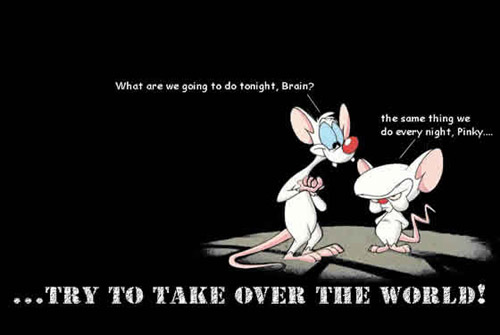I have been watching the U.S. Open (tennis) all weekend. Overall, sports, especially hockey, are my narcotic, my escape, but watching the U.S. Open is really a ritual. Andre Agassi retired after being beat by a 25 y/o German. Agassi was obviously in physical distress (wincing during every serve and sometimes crying out in pain), and that was emotionally very hard to watch, since I had seen every one of his 21 U.S. Open performances: I hated to see him go out on such a painful, psychologically and physically, note.
But this entertainment brings me to something that I noticed during the Vietnam war (I was a young kid) and even more so now. The war in Iraq seems like some bad dream that no one, except for people, like me, who have a relative in the service, wants to think or talk about. Everyday life is everyday life, and the war is really not a part of it. One of the reasons I posted the U.S. and Iraqi "death counters" on my blog was to remind myself and everyone who visits the blog the cost of this war. Just since Friday, the U.S. death count has risen by 10 (actually more have died, but the counter only records those officially announced as deceased) and the Iraqi death count has risen by 300. While I've been watching tennis, good people have died (and some bad people too). Both figures are appalling, but I don't see any urgency on the U.S. public's part, especially younger citizens, to address this conflict or even discuss it. When it has been brought up in my classes (least semester), some students said, and I quote verbatim here, "I don't want to talk about this--it's too depressing." It's really hard for me not to become distressed by such comments, but I realize that this war is an abstraction (unless a student has lost a friend or family member) and that life goes on as usual, and little thought is given to either U.S. soldiers or Iraqis, unless it is some regurgitated patriotic lip service that falls apart upon questioning the speaker about what he or she has read or really knows about Iraq, its people, and our presence there. Those who have relatives or friends in the conflict speak far more realistically and with more authority. When protesters on both sides of the war demonstrated last year (pro-war and anti-war), they consisted of a handful of people, and most students laughed at them when walking by the protests between classes.
My father's theory about this apathy is that there is no draft. He thinks there should be one, and that, unlike in Vietnam, college students should not be exempt. He also feels that women should not be exempt, since equality shouldn't stop at the battlefield. Many argue that drafted soldiers are horrible. Their morale is bad. They aren't there because they want to be. But others argue that morale is already bad among the troops who are doing the actual fighting since they are serving an average of 18 month or more deployments (during Vietnam, it was 6 months), and they don't know who the enemy is since it is an asymetrical war, like Vietnam. Also an argument for a draft is that if more kids go, it will relieve those who have been there too long, and it may force a conclusion to this war sooner, since the draft is never popular.
What do you think?



0 Comments:
Post a Comment
<< Home